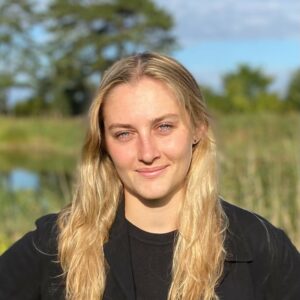Why is it that we can share our cynicism, complaints, and frustrations without hesitation with perfect strangers, but we can’t share our dreams? How did we arrive at a culture that constantly, almost automatically, ridicules visionaries? Whose idea of reality forces us to “be realistic?” When were we taught, and by whom, to suppress our visions? Donella Meadows
I came across this quote by Donella Meadows last week, as I was listening to an episode of the BBC podcast, “Great Lives”, in which Kate Raworth was paying tribute to Meadows’ life and work. The podcast host played a short audio clip from one of the first meetings of the International Society for Ecological Economics in 1994 where Meadows made this point in her speech.
With just over one week until 180 changemakers, thinkers, organisations, and funders working across the new economy field gather in Rotterdam for a full day of conversations, speeches and workshops, centering on how we can bring about economic systems change, it feels like the perfect time to revisit Meadows’ reflections and ideas shared in a similar setting. I hope you’ll join me in reflecting on what lessons we can draw from the works of one of the new economy movement’s founding figures (and in reading her full speech here).
Almost 30 years have passed since then, and the field has developed immensely. The number of organisations actively pursuing economic systems change is still growing*, and a 2021-study found that 74% of people in the G20 countries support the idea of moving their nation’s economic priorities beyond expansions of profit and wealth towards human wellbeing and ecological protection**.
Yet, the culture that Meadows describes, one which inherently ridicules visionaries, is still very much in place. Criticising the existing paradigm and structures is much less daunting than putting forward a positive vision of a different world. And when we do dare to share such visions, it is often in terms of either very specific technical changes or grand, difficult-to-disagree-with frameworks, which leaves lots of room for individual interpretation and thus for uncertainty*.
Criticising the existing paradigm and structures is much less daunting than putting forward a positive vision of a different world.
In writing this piece, I am confronted with my own hesitation to use words like “dream” and “vision” while wanting to be taken seriously. Meadows points to at least one reason behind this dynamic; the upholding of realism as an important value of any political project. Realism, as defined by our current paradigm is successfully mobilised as a tactic of those benefitting from upholding the status quo. But more critically, a (perceived) lack of realism could be a major reason that people who agree with the need for economic systems change do not dare to fully commit to the agenda as a political project. In the face of too much uncertainty you might choose to stick with a broken yet familiar system rather than take a chance on a new and untested one.
In the face of too much uncertainty you might choose to stick with a broken yet familiar system rather than take a chance on a new and untested one.
The upholding of the same culture of realism results in a vicious circle that restrains our ability to be visionary, and which we can only break by challenging notions of realism through offering a different reality. In a world as heavily burdened by crisis as ours, it can feel indulgent to envision anything beyond the absence of problems – but as Meadows points out, we critically need to be able to articulate a vision of what she calls “the presence of blessings” if we want to secure the broad support and political courage, which is a prerequisite for the implementation of a new economy.
The overarching theme for next week’s gathering is “moving new economic thinking from the margins to the mainstream” – a framing that is purposefully broad to allow for open and multifaceted ideas, and the cross-pollination of agendas and disciplines.
As the gathering approaches, my hope is that between discussions around our diverse tactics and theories of change, we will make sure to hold space for conversations that carve out concrete and very detailed visions of how a new economy will in fact look and feel, without being bounded by restrictive notions of realism or fears of being ridiculed.
*https://demoshelsinki.fi/wp-content/uploads/2022/01/Turning-the-tide-v.022022.pdf, p.19
Back to Stories


